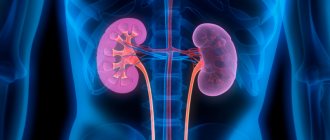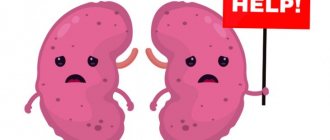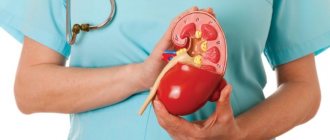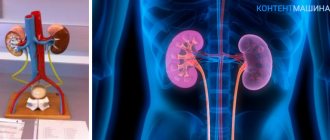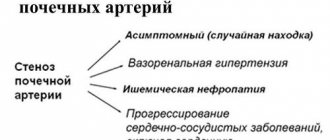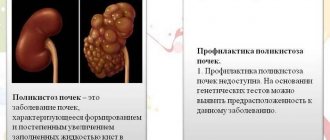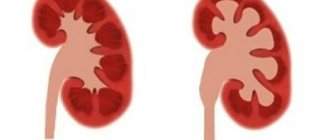Ayurveda harmony of life
Ayurveda teaches that life is the harmony of the supreme soul (Atma), mind (manas), senses (indriyas), and body (sharira). It is these elements that make up the human constitution, which is called prakriti.
Prakriti also depends on the balance of physical and mental energies. Thus, according to the teachings of Ayurveda, both the spiritual and the physical in a person are interconnected, and it is within our power to maintain this.
Ayurveda is the harmony of the physical and spiritual
What is Ayurveda?
These are ancient techniques of traditional Indian medical practice. Nowadays, Ayurvedic principles of treatment refer to alternative or folk medicine. Ayurvedic therapy includes philosophical and spiritual practices, the use of natural medicines, and healthy nutrition. This is the standard basis on which the therapy of any pathology is based. At the same time, each disease is treated separately. Treatment of kidney pathologies also has its own nuances.
Ayurveda includes 8 sections:
- surgery;
- internal medicine;
- pediatrics;
- otolaryngology;
- spiritual therapy;
- therapy for genetic disorders;
- longevity and health practices;
- toxicology.
Return to contents
Ayurveda is the science of health, longevity and beauty
The main goal of Ayurveda is to maintain a healthy body through natural products. They should help prevent disease.
IMPORTANT: Unlike many practices, this one fights the causes of ailments, and not their consequences.
According to Ayurvedic medicine, it is important to start from the constitution of the body (dosha) :
- Vata - people of this type are thin and tall. Have dry skin. Emotionality is also present
- Pitta - people with an average body type and problem skin. Ambitious by nature, focused on business
- Kaphas are those with a thin waist with rounded shapes and oily skin. They suffer from constant colds. They know how to listen to others, value emotions
So, each type has its own diet : Vata needs oily and heavy foods, Pitta needs dry and cold foods, Kapha needs light and warm foods.
Ayurveda suggests proper nutrition depending on the constitution of the body
Causes
Some of the common causes of kidney stones are:
- - Following an unhealthy diet and a sedentary lifestyle
- - Working for long periods of time in direct sunlight
- - Doing excessive physical work
- – Excessive consumption of alcoholic beverages, tea and coffee
- - Indulging in heavy, fatty, sweet and indigestible foods, insufficient consumption of fresh vegetables, salts and alkaline foods
- - Drinking too little water
- — Diet high in meat, fish and poultry
- – Suppression of the desire to stool and urinate
Ayurveda oils
Oils are one of the main ways to influence the body according to ancient teachings. They act for both aesthetic and medicinal purposes.
- Sesame - Ayurveda ranks it among the most useful, because it perfectly nourishes, warms, while acting deeply on the tissues. If you suffer from joint pain, rub this oil into problem areas - the high calcium content will definitely help. It also has a great effect on hair - it grows faster and becomes stronger.
- Coconut oil - makes the skin look like velvet, soft, and eliminates the problem of split ends from the hair. Thanks to hyaluronic acid, the skin is moisturized, nourished, and ages more slowly. In addition, this oil has antibacterial properties and protects against ultraviolet radiation.
- Dhavantaram oil - this product, named after the healer god, contains more than 50 plant extracts, toning the skin. However, it also strengthens bones and relieves tension from muscles.
IMPORTANT: In general, there are quite a lot of oils, and when using appropriate massage techniques they work even better.
Oils in Ayurveda are an important component
Diet for urolithiasis of the kidneys
So we found out what symptoms urolithiasis manifests itself, what kidney stones can lead to, and talked about what to do to reduce their number. By drinking special herbs, following a diet and drinking a normal amount of fluid, you can normalize kidney function and eliminate stones.
12 Tips for Liver Health
Product Comparison (0)Showing 1 to 21 of 25 (total 2 pages)Sort by:Show:
India
Giloy Giloy 60 caps Yugveda
410 rub.
Tinospora Cordifolia (Guduchi) is one of the few plants that can be taken continuously, year-round, throughout your life. Guduchi has antiviral properties, gives strength, acts against warts, herpes, papilloma, viral hepatitis..
Himalaya
Amalaki / Amalaki 60 tab. Himalaya
356 rub.
Description: Amalaki (amla) tablets from the Himalaya company. Amla is a traditional Ayurvedic remedy. Amla fruits are the richest source of vitamin C on earth; moreover, due to its astringent properties, amla retains vitamins in the body and helps...
Alarsin
Bangshil / Bangshil Alarsin 100 tab.
630 rub.
Description: a highly effective drug that helps cope with disorders of the genitourinary system, such as painful and difficult urination, cystitis, pyelitis, prostatitis, etc. The natural composition of the drug, as a rule, does not cause side effects..
Baidyanath
Chandraprabha / Chandraprabha diuretic, reduces acidity Baidyanath 80 tab.
360 rub.
Chandraprabha is one of the most popular and effective drugs used in the treatment of bacterial diseases of the urogenital area. Most often used for various renal, gynecological and some sexually transmitted diseases.
Himalaya
Cystone / Cyston 60 tab. Himalaya
356 rub.
Description: Cyston destroys and removes stones from the kidneys and urinary system, relieves burning and unpleasant pain during urination and acute infections of the genitourinary system. Relaxes the muscles of the urinary system, relieves spasms and any pain..
India
Diatrin/ Diatrin 120 tab. Jiva
356 rub.
Description: An Ayurvedic preparation consisting of carefully selected medicinal herbs and plants that have natural immunomodulatory, hypoglycemic and diuretic properties. Properties: Haridra strengthens the immune system and helps...
India
Fortege / Fortege 100 tab Alarsin
667 rub.
Description: Natural ingredients in Fortege help tonify the genitourinary and neuro-glandular systems, accelerate the metabolic process. In men, an increase in sperm count and sperm motility is observed within 3 months..
Alarsin
Fortege / Fortege 100 tab Alarsin (Markdown)
450 rub.
ATTENTION: Discounted product. Description: Natural ingredients in Fortege help tonify the genitourinary and neuro-glandular systems, accelerate the metabolic process. In men, an increase in sperm count and sperm motility by..
Himalaya
Gokshura / Gokshura 60 tab. Himalaya
351 rub.
Gokshura (Tribulis terrestris - Tribulus creeping). Gokshura is a natural diuretic, effectively used for diseases of the genitourinary system and kidneys. It has the property of destroying and removing kidney stones. Gokshura is indicated for pyelonephritis, incl..
Himalaya
Himplasia / Himplasia 30 tablets. Himalaya
356 rub.
Description Himplasia is a unique Ayurvedic preparation of plant origin. It helps to cope with problems that arise in the lives of 80% of the stronger half of humanity and are associated with age-related changes in the prostate. Prostatic...
India
Kanchanar Guggal / Kanchanar Guggul 120 tab Baps Amrut
509 rub.
Description: Kanchnar guggulu is a classical Ayurvedic formula that is used to eliminate excessive fat and kapha deposits from tissues that appear as abnormal fatty growths, obesity, swollen lymph nodes and abscess. This is also a...
India
Kanchnar guggulu/ Kanchnar gugulu 80 tab. Baidyanath
351 rub.
Description: Kanchnar guggulu is the best Ayurvedic medicine for various disorders of the lymphatic system. Together with Dashmula, it is used to treat cystic formations of the ovaries, fibrocystic mastopathy, thyroid gland (cervical l..
India
Kanchnaraguggulu/ Kanchnar gugulu 10 tab. Kottakal blister
77 rub.
Kanchnar-Guggul is the best Ayurvedic drug for various disorders of the lymphatic system. Together with Dashmula, it is used to treat cystic formations of the ovaries, fibrocystic mastopathy, thyroid gland (cervical lymphadenitis), tub..
Ayurveda Import
Myron / Miron 100 tab. Alarsin
351 rub.
Myron is used for leukorrhea (leukorrhea), cervicitis, endometritis and urination disorders, vulvar itching, candidiasis, thrush, dysuria and infertility associated with these diseases. Helps normalize urination, reduce...
India
P-6 / P-6 (all types of stones) Quick Relief Formula 24 drops (Markdown)
495 rub.
ATTENTION: Discounted item. Description: The popular Ayurvedic remedy P-6 Oimtment helps against all types of stones. R-6 is a very fast-acting formula with absolutely no side effects. Helps remove internal and external...
Himalaya
Punarnava / Punarnava 60 tab. Himalaya
356 rub.
Punarnava - healthy kidneys and heart Himalaya - the Punarnava plant is used in Ayurvedic recipes quite often, due to its healing properties. This is an excellent decongestant that lowers the level of...
Himalaya
Speman / Speman 60 tab. Himalaya
356 rub.
Speman is an Ayurvedic herbal preparation for men's health from. It is used in the treatment of male problems in the intimate sphere. Action and use of the drug: Used in the treatment of prostatitis, including acute and chronic..
India
Thyrocap Thyrocap 10 drops (thyroid gland) Capro
122 rub.
Thyroid diseases are among the most common endocrine disorders worldwide. Both men and women of any age can suffer from thyroid disease. Thurocap is a safe herbal preparation for...
Himalaya
Triphala / Triphala 60 tab. Himalaya
356 rub.
Triphala is an ancient Ayurvedic remedy known in India for several millennia. Description: With the help of triphala, people achieve amazing results in rejuvenating the body and healing many diseases. Triphala is used as a stand-alone...
Dabur
Triphala churna / Triphala churna (powder) Dabur 120g
356 rub.
Cleanses away impurities and toxins. Strengthens Immunity. Burns excess fat. Refreshes the reproductive system. Enhances the effects of other Ayurvedic drugs. When the dose is increased to half a teaspoon, it acts as a natural laxative. 1 jar of grip..
India
Triphla guggul / Triphala guggul 110 tab. Adarsh
500 rub.
Triphala guggul from Adarsh is made on the basis of triphala extract and its effectiveness is much higher in comparison with classic triphala guggul. Action: Triphala guggul has a strong cleansing and detoxifying effect on the body, especially...
Showing 1 to 21 of 25 (total 2 pages)
Each disease requires an integrated approach to treatment, and it is not always possible to cure it with pills alone. Thus, Ayurveda for kidneys is one of the methods of treating various kidney pathologies. Ayurvedic methods and practices make it possible to quickly cope with various kidney pathologies: from urolithiasis to inflammatory processes. This unconventional treatment method has been widely used from ancient times to modern times.
Another method that can be used for any type of kidney stones is pallerukayala powder 10 gm mixed with 10 gm honey. After this, immediately drink a cup of sheep or goat milk. This treatment will melt all types of kidney stones within a few days
Excess urine that tries to leave the body through urine gets stuck in the kidneys and forms kidney stones. Why do kidney stones form? If you drink dirty water (contains chlorides, fluorides and other contaminants), eat vegetables and grains cultivated with chemicals, or overuse chemicals, you are at high risk of developing kidney stones. Kidney stones can also be caused by high blood pressure and thyroid dysfunction. I have already written about folk remedies for dissolving kidney stones . In this article I want to talk about Ayurveda remedies for treating kidney stones.
When stones form, you may feel lower abdominal pain and stomach pain. Painful urination occurs, and the urine has an unpleasant odor. If a stone interrupts the flow of urine, the stones create friction with the kidneys, so drops of blood may be found in the urine.
Pay attention to your urine: if it is dark yellow, a mixture of black/brown/red, and has an unpleasant odor, then this indicates some kind of disease.
Ayurveda cosmetics
The main rule for making such cosmetics is naturalness . Moreover, all components exclude the occurrence of allergic reactions or addiction. And, most importantly, all the ingredients are selected in such a way that they do not conflict with each other.
The selection of cosmetics surprises with its variety : soaps, toothpaste, lotions, balms, shampoos and conditioners, paints, masks, creams, oils.
- The hair dye penetrates into the very structure, is soft and has no repulsive odor.
- Shampoo and conditioner will help the new color last longer, fight dandruff, itching, and oiliness
- The soap perfectly tightens pores and removes makeup perfectly.
- Toothpaste works well against caries, bacteria, and whitens teeth
- Face cream nourishes the skin, has a positive effect on the functioning of the sebaceous glands, protects against rashes, and protects from the sun.
The range of Ayurvedic cosmetics is very diverse
Ayurveda recipes for health
- If you want something sweet but healthy , nut fudge will help out perfectly. To prepare it, mix one and a half cups of milk, the same amount of sugar and nuts, and 2 tablespoons of butter in a saucepan. Cook it all for 15 minutes, remembering to stir. Then reduce the heat and simmer the mixture for a few more minutes. While this is all cooking, grease a baking sheet with oil and then place the mixture on it to cool. Now roll out the layer, which after hardening, cut into pieces
IMPORTANT: It is recommended to roll out the layer with wet hands until it reaches a thickness of 2-2.5 centimeters.
- If you want spice with benefit , you can prepare a seasoning from a teaspoon of cloves with the same amount of black pepper, cardamom, and cinnamon. Also add 2 to 4 tablespoons of cayenne pepper and 5 bay leaves. The ingredients must be ground, mixed and stored in a tightly closed container.
You can prepare a lot of delicious dishes using Ayurvedic recipes.
Ayurveda women's health
The teachings of Ayurveda contradict the usual statement that irritability, spasms, cramps, migraines and other harbingers of the female cycle are normal. This is a violation of the so-called metabolic balance.
A woman can glean information about conception and pregnancy “Pinda Siddihi” . How to conceive a baby of the desired gender, what foods to eat while pregnant - these questions have interested women at all times.
As for the menstrual cycle , Ayurveda interprets it as an action that cleanses a woman’s body. And in order for your periods to be regular, you need to create light loads for yourself, and generally rest for 2-3 days during the cycle. Sports, work in the garden or garden, hard housework - all this is prohibited during these 2-3 days, but creative activity is encouraged.
As for premenstrual syndrome, spicy, salty, sour foods and fermented products are extremely undesirable at this time. As for your emotional state, it is important to avoid anything that can cause severe irritation.
Ayurveda gives a lot of advice regarding women's health and harmony
Kidneys. General recommendations. Healing with Ayurveda
Kidneys. General recommendations
. Healing with Ayurveda Disc Book At a subtle level, the main cause of diseases of the urinary system is fear. Fear is associated with the astringent taste and is one of the main enemies of the mind. The kidneys are a paired organ. They symbolize partnership and relationships. Kidney diseases indicate the presence of problems in the sphere of interpersonal relationships. Fear may be due to the fact that we are afraid of losing relationships, opening our hearts to other people. In particular, marital and family relationships are of great importance, which influence the condition of the bladder. Here the fear may be related to the fact that the relationship is deteriorating as a result of deception or abuse. The most unpleasant thing is when this happens after idealizing a partner. There is a collapse of ideals. We can treat a person with reverence, deify him, but suddenly we discover that he has shortcomings, and there is a fear that the same will happen in relationships with other people. Idealization is dangerous, we should not idealize anyone. Sometimes a condition called “wandering kidney” occurs. The ligamentous apparatus weakens, and the kidney becomes unfixed and moves in the abdominal cavity. This violation indicates a state of uncertainty. And uncertainty breeds fear. The formation of a wrinkled bud indicates an inability to solve the problem of relationships with a partner. When we build relationships, having experience not only of this, but also of past lives, we experience fear of these relationships. There is an Ayurvedic mantra “I wish everyone happiness...”. In the third line, the words are: “I wish everyone to see friends close to their hearts in those around them.” This wish is not without reason. Ayurveda is deeper and more holistic than modern medicine. Ayurvedic medicine addresses issues of psychology, sociology, philosophy and even spiritual life, although Ayurveda is not a religion. The above mantra, especially its third line, is very revealing. What is a “close friend”? There are very few such people in the lives of each of us. Ayurveda states that we must build close relationships with everyone. It is said that the Creator does not see our good relationships, but sees bad ones. Therefore, we must get rid of the latter. In Ayurveda, kidneys are given great importance. They are extremely closely connected with some systems (reproductive, nervous). The kidneys play a huge role in water-salt metabolism. The body is adversely affected by poor nutrition. With such a diet, problems begin with the digestive system, then the whole body is involved in the pathological process. Likewise, poor drinking habits can destroy the kidneys and urinary tract. Nowadays, fashion magazines often write about the need to drink large amounts of liquid per day. This is an erroneous opinion, since it can disrupt the water-salt balance in the body. In addition, an additional burden is placed on the kidneys. On average, an adult needs to consume about 1.5 liters of fluid per day. In the hot season, this amount can be increased to 2 liters. It is also necessary to take into account the conditions in which a person works, for example, a hot workshop in production. But the principle underlying the drinking regime is to drink liquid only when there is a feeling of thirst. Excessive fluid intake leads to Pitta and Kapha imbalance.
Representatives of the Kapha type need to consume less (about 300 ml) liquid. This is average data.
Factors that provoke the development of kidney diseases: • excessive or insufficient (less than 1 liter per day) fluid intake; • drinking alcohol, coffee and tea; • taking nephrotoxic drugs (antibiotics, diuretics). Diuretics dry out the kidneys, leading to kidney disease. The use of only a small number of plants makes it possible to have a diuretic effect without drying out the kidneys (licorice, marshmallow). If these plants are not included in the diuretic collection, it will drain the kidneys; • excessive consumption of foods containing large amounts of calcium and oxalic acid; • factors that increase Vata dosha, for example, long journeys, excessive thinking, fear; • the functional activity of the kidneys decreases with age: the older the person, the weaker the kidneys. This is due to the predominance of Vata dosha in the elderly; • overly emotional, easily hurt children are more susceptible to kidney disease than everyone else. It is necessary to regularly empty the intestines and cleanse the body, and it is also necessary to regularly cleanse the kidneys. Ayurveda uses gentle techniques. If the kidneys are not cleansed regularly (2-3 times a year), their detoxification function is disrupted, toxins accumulate in the urinary system, blood, pain in the lower back, along the sciatic nerve, painful urination, infectious diseases of the urinary system, stones may appear. in the kidneys. In men, impaired renal function affects the condition of the prostate gland. Kidney cleansing is carried out in the warm season and includes daily fasting and taking herbal tea.
Starvation. If fasting is beneficial for people of the Kapha type and can be carried out for some time, even every week, then people of the Pitta type can fast no more than 2 times a month. For people of Vata type, fasting is generally unfavorable, and it can be carried out only for special indications, no more than once a month. If there are no special indications, only fasting days are acceptable. Daily fasting is carried out on the 11th day from the full moon and on the 11th day from the new moon. You can only drink clean water. Kapha may not drink water, especially if there is swelling, excess weight, or increased mucus production. For Vata and Pitta, dry fasting is not recommended. After a daily fast, prepare an infusion: 1 tbsp. spoon of composition "", 1/3 teaspoon of horsetail herb, 1/3 teaspoon of corn silk and 1/4 teaspoon of dry chopped parsley. Pour 500 ml of boiling water over the composition and leave in a thermos for 30 minutes. Take in the morning after a daily fast, warm (not cold!) or hot. Drink this amount of decoction from morning to lunch. Then you can break your fast and start eating. The plants included in the collection cleanse the kidneys and have an anti-inflammatory effect. It is not recommended to carry out the above-described cleansing if you have urolithiasis. It is necessary to first act on the underlying disease. Let us remember that the abuse of diuretics significantly weakens the urinary system. And recently, the use of diuretics has become popular for weight loss, hence the negative consequences. Diuretics have a stimulating effect on the kidneys; a large amount of fluid is removed from the body, which unbalances the kidneys.
Excessive fluid intake, especially cold or iced fluids, also weakens the kidneys, which do not like cold. In addition, Kapha dosha increases. Both insufficient and excessive fluid intake throws the body as a whole out of balance. Sometimes you can read that the human body is 70% water. This is wrong. Water either passes into plasma or is excreted from the body. Otherwise we would be like jellyfish. Plasma is an oily substance, the opposite quality of dryness is not moisture, but oiliness. With excessive consumption of liquid, especially purified or distilled water, vitamins, minerals, and trace elements are removed from the plasma, and the body is depleted. The body is not powered by food and water, but by prana, the vital energy that we extract from food and water. If water and food are of poor quality, then we do not receive enough prana. Ayurveda says which water is best. This is rainwater. But this information is five thousand years old. Unfortunately, we cannot now consume rainwater as a food component. Ayurveda talks about how we should prepare food. Heat-processed food is better than raw food. And boiled water is better than raw water, as it is better absorbed. Chlorination and distillation deprive water of its vital energy. Regular consumption of such water can lead to poor health. You need to use water filters; it is useful to put silver, copper or shungite at the bottom of the filter. Spring water is useful. You can increase the prana content in pure water by pouring it from glass to glass. Rasayans for the kidneys are remedies that have a rejuvenating, restorative, regenerating and anti-inflammatory effect on the kidneys. In Ayurveda, the best remedy for the kidneys is considered to be (Himalayan mumiyo). It improves the functioning of the kidneys, bladder, strengthens the nervous system, has an antitumor effect, is an antiseptic and has a litholytic effect (included, for example, in the composition). Shilajit is balanced across all doshas, that is, it does not have a stimulating effect on any of them. The average dosage is 2 capsules in the morning and evening. It is better to drink it with hot milk.
Ayurveda diabetes treatment
Ayurveda views diabetes not as a disease related to the urinary system, but as a result of a problem with water metabolism .
Causes include excess sugar, dairy products, bread and fats. Other reasons Ayurveda includes are a sedentary lifestyle, nerves, sleep during the day, and frequent sexual activity.
IMPORTANT: Followers of Ayurveda are confident that to prevent diabetes, one must avoid dissatisfaction with life.
For treatment, you should pay attention to turmeric in powder form. You need to take it three times a day, 1-3 grams, along with aloe juice. For chronic diabetes, it is recommended to take mumiyo.
Ayurveda teaches that turmeric is very beneficial for diabetes
Male infertility
The inability to produce sufficient sperm leads to male infertility.
However, in other respects sexual function may be normal. Tonic therapy, similar to that used for impotence, helps increase sperm count. The most recommended foods are dairy, ghee, sesame oil, garlic and onions. Good herbs include ashwagandha, atmagupta, bala and pippali. Clinical studies conducted in India have shown that ashwagandha is very effective when it comes to increasing semen secretion.
Since blood loss usually weakens vitality, women benefit from herbal tonics in most cases. Use them in the same way as vitamins or mineral supplements. Formulations based on shatavari, such as Women's Tonic (No. 4), Chyawanprash Ayurvedic herbal jam, and the Chinese Precious Pill for Women, are usually recommended.
The main Ayurvedic tonic for the female reproductive system is shatavari (Azragaiv gasetoziz). It has excellent nourishing and emollient properties and soothes the heart. Aloe juice is very useful, as it simultaneously cleanses and nourishes tissues. In Chinese medicine, tang kwei is used as the main tonic, a plant that has a menstrual, blood-restoring and anti-spasmodic effect.
Keep in mind that overuse of strong menstrual medications such as pennyroyal, tansy, or rue can cause heavy bleeding and other menstrual problems. These herbs are contraindicated during pregnancy, as they can cause miscarriage, but their use for this purpose is not recommended, since they are not effective enough for this purpose and cause side effects.
One of the properties of a spicy or pungent taste is to clear congestion and increase blood flow. Therefore, many widely used spices are used to induce menstruation, which in addition often have an antispasmodic effect. The best spice in this case is turmeric, but other spices are also good: cinnamon, ginger, red and black pepper, basil, dill, fennel, cardamom, asafoetida.
A quarter to half a teaspoon of these spices should be taken with 1-2 teaspoons of aloe juice twice a day for any complications in the course of menstruation. You can take “Tonic for Women” (No. 4) 2-3 tablets three times a day for 1-2 weeks before menstruation with warm milk or warm water for Vata constitution, with aloe juice or cool water for Pitta constitution and with honey - under Kapha constitution.
Premenstrual syndrome (PMS)
This concept refers to a number of menstrual disorders: absence, delay or premature onset of menstruation, premenstrual headaches, cramps, breast swelling, etc. In a narrower sense, PMS refers to emotional or nervous disorders associated with menstruation, which manifest themselves in the form of irritability, rapid mood swings, feelings of depression or anxiety, etc.
To treat the mental manifestations of PMS, yoga therapy methods using sattvic (helping to harmonize the mind) foods and herbs may be useful. Gemstones that have the ability to calm the mind work well. Pearls and moonstone (moon stones) pacify the mind and heart, strengthen the female reproductive system. Pearls are considered the stone of women. It enhances the feminine principle both physically and mentally.
PMS can be associated with a violation of any of the three doshas, but, manifested primarily by deviations in the mental and nervous state, PMS is usually still a violation of Vata. Emotional arousal can disrupt the normal production of hormones that regulate the menstrual cycle. Provoking factors include: poor nutrition, overwork, long trips, communication difficulties, suppressed emotions and other stress. The principles of treating PMS are the same as for treating the female reproductive system as a whole.
Types of PMS
Vata PMS is characterized by anxiety, depression, insomnia, constipation, headaches and severe painful cramps. Nervousness, agitation, absent-mindedness appear, dizziness, ringing in the ears, and fainting are possible. A woman's mood can change quickly, and it can be difficult for others to please her.
She may experience anxiety or a feeling of uselessness, a feeling of cold, thirst and dry skin. She may feel like she is dying. Thoughts of suicide may appear, but with the onset of menstruation this all goes away. In many cases, there is irregularity or delay in menstruation. The discharge is usually scanty, with a brownish or dark tint. The duration of menstruation is short, only a few days, with increased pain at dawn and dusk (Vata time).
Pitta-type PMS is manifested by irritability, anger, a desire to argue, and sometimes outbursts of rage. There may be diarrhea, thirst, sweating, chills, and a feeling of heat in the upper body. New rashes and acne may appear on the skin. Menstrual flow is usually heavy or even excessive, with clots.
Kapha-type PMS is manifested by a loss of strength, a feeling of heaviness, tearfulness, sentimentality, and the need to be loved; however, mood variability is not as pronounced. Susceptibility to colds and flu increases, mucus secretion increases, there is no appetite, nausea is observed, the chest swells, and swelling may appear.
Differentiated treatment of PMS
If you have a Vata constitution or Vata-type PMS, a Vata-reducing diet is indicated, including tonic foods, garlic and cooked onions. Before going to bed, you can take menstrual spices in combination with anti-spasmodic spices (for example, turmeric and nutmeg) with warm milk.
Warm sesame oil is applied to the head and lower abdomen. You can also lubricate the vaginal area with it or do douching with emollient herbs, such as shatavari. Stimulants are excluded - coffee, tea, tobacco, alcohol, drugs. Red gemstones that help restore blood are useful: red coral, garnet, ruby, heliotrope (bloodstone), as well as white stones (pearl, moonstone, etc.).
), which increase the amount of fluids in the body. The treatment uses sweet and spicy taste in combination with herbs such as aloe (juice), shatavari, ashwagandha, licorice, turmeric, musta, dill, fennel, valerian, jatamamsi, asafoetida, and among the preparations - Ashwagandha, Shatavari ", "Asafetida 8" or "Tonic for Women" (No. 4).
A simple and good composition can be prepared by taking three parts of shatavari and one part each of turmeric, cinnamon, valerian and licorice. Among the herbs used in Chinese medicine are tang kwei, rehmannia, lactiferous peony and chuan xion, the preparations “Four Substances”, “Volodushka and tang kwei”. The latter is the main drug used to treat PMS in Chinese medicine.
Women with a Pitta constitution require a combination of a Pitta-reducing diet with the use of spices that have a menstrual effect: turmeric, coriander, fennel, saffron, safflower. Hot spices should be avoided. Pearls, moonstone and red coral help. Incense (jasmine, rose, sandalwood, gardenia) and fresh flowers are very useful.
Among Ayurvedic herbs, aloe (juice), shatavari, turmeric, musta, saffron, manjishta, simplocos, brahmi and bhringaraj are used, and among preparations, the composition “Shatavari” and its varieties, as well as aloe wine. A useful composition is three parts of shatavari and one part each of turmeric, must and brahmi. Chinese medicine herbs include dan shen, motherwort, peach kernels, safflower, milkweed, musta and mint;
If you have a Kapha constitution, a diet that reduces Kapha is necessary. Heavy or oily foods should be avoided. You can use spices without restrictions, including all hot ones, and light vegetables. Ayurvedic herbs include aloe (juice), turmeric, musta, cinnamon, black pepper, pippali, ginger and calamus, and preparations include Trikatu and Cloves.
Amenorrhea
Amenorrhea is a delay or absence of menstruation, treated in basically the same way as PMS. In amenorrhea, deficiency manifestations predominate, since amenorrhea is a long-lasting and recurring condition usually associated with Vata.
Causes of amenorrhea include: hypothermia, poor nutrition, anemia, exhaustion, dehydration, uterine displacement, hormonal imbalances, emotional trauma, etc. Amenorrhea can occur as a result of a severe or debilitating illness, such as diabetes. It may be associated with constipation and the factors that cause it.
Treatment of amenorrhea
Special treatments for amenorrhea are menstrual herbs. As a rule, tonics are used together with them to restore the reproductive system. In most cases, myrrh is effective, especially in tincture form.
Ayurveda liver treatment
- Ayurveda teaches that it is in the liver that the inner fire of a person is located. Imbalance, manifested in anger, irritability, ambition and jealousy can lead to diseases in this area
- In this case, the above-mentioned turmeric, barberry, and brahmi can help, which are mixed and, when consumed, reduce cravings for those foods that negatively affect liver function.
- Dandelion, gentian, “golden seal”, aloe vera, nettle, and aloe also help. The juice of the last plant should be consumed three times a day, 2-3 teaspoons
According to Ayurveda, aloe helps with liver problems
Ayurveda treatment for runny nose
When you have a runny nose, Ayurveda advises drinking hot water several times a day, which will help remove toxins. Also very well understood is slightly heated ghee, which should be instilled 3 or 5 drops into each nostril twice a day - this relieves irritation of the mucous membrane.
IMPORTANT: Ginger tea for a runny nose is very useful, but if you are also taking aspirin, then wait at least 2 hours after drinking tea. The same applies to tea - when taking aspirin, you need to wait a couple of hours, only then start drinking tea.
Ghee oil, according to Ayurveda, is a good remedy for a runny nose.
Ayurvedic way to cleanse the kidneys
Add 1 tsp to a cup of clean water. tea powder and boil the water until half of it has evaporated. Filter the tea powder and add half a glass of water to the remaining water. Drink this remedy immediately after waking up. After this (at least 1 hour), do not consume any food or liquid, including water.
In the evening, drink some radish juice with honey (See article: Honey dissolves stones ). Use this remedy 1-2 hours before lunch.
You need to continue treatment for at least 15 days. Already on the 16th day your kidneys will be clean. Repeating this method for 15 days a year throughout our lives will always keep our kidneys clean, whether there are stones in them or not. For those who do not have stones, this method is an excellent preventive measure.
Ayurveda kidney treatment
Eastern medicine pays great attention to the kidneys - they are considered to be associated with the nervous system and, of course, with the reproductive organs. Violation of the norms of drinking water, alcohol, antibiotics, overly active intimate life, excessive calcium intake - all this leads to kidney problems.
In order to get your kidneys in order, Ayurvedic experts recommend fasting for a day, and then drinking 0.5 to 4 liters of water in the morning. But you must not forget to add parsley, coriander, horsetail, lemon grass, and corn silk.
IMPORTANT: Handle diuretics with care - their excessive use is also harmful to the kidneys.
Ayurveda recommends being careful when drinking water if you have kidney problems.
Ayurveda And Kidney Stones
There are several diseases with fatal consequences.
Kidney stones are one of them. It is a chronic disease with acute and severe pain and if not treated properly, the patient can face fatal consequences. However, it is manageable with proper treatment. In this article we will talk about such an unpleasant disease as kidney stones and how to get rid of them (according to Ayurveda). Primary urolithiasis without any systemic diseases or any complications should be treated with medication, but for chronic complications, surgical treatment is preferable.
The description of this disease is found in almost all the scriptures of AyuAyurveda as well as in the Vedas as a separate disease (according to samhita Sushruta). According to Sushruta Samhita, surgical treatment is not the preferred method because even skilled surgeons cannot get good success in surgical treatment of kidney stones.
The process of stone formation in the urinary tract, i.e., kidneys, bladder and ureter, is called “urolithiasis.” When urine becomes supersaturated with insoluble materials due to increased excretion and/or excessive water conservation, crystals form, which can grow and aggregate to form stones.
Ayurveda treatment for endometriosis
According to the teachings of Ayurveda, with this gynecological disease you need to limit yourself in the consumption of alcohol, refined sugar and spices with the exception of saffron, turmeric and coriander. Almost all oils are also prohibited, except sunflower and coconut.
It is recommended to use a mixture of approximately equal composition of shatavari and manjishta. It is also worth consuming dandelion, echinacea, myrrh, brahmi, and aloe juice.
Dandelion is a very useful plant, including for the treatment of endometriosis - Ayurveda teaches this
Urinary disorders (dysuria)
Urinary disorders and difficulty urinating are observed in most kidney diseases. Difficulty or painful urination can be due to arousal of any of the three doshas. Assessment of dysuria is important for the diagnosis and treatment of renal disorders.
Vata-type dysuria is characterized by severe pain in the lower back, rectum and urethra. Urination is frequent, scanty, accompanied by sharp or stabbing pain. There are symptoms of high Vata - constipation, insomnia, etc.
With Pitta-type dysuria, the urine turns dark yellow or red. Urination is frequent, sometimes copious, and is accompanied by a burning sensation. Fever, irritability and other symptoms of high Pitta are observed.
Kapha-type dysuria is accompanied by urine that is pale or milky in color and usually contains mucus. There is a feeling of heaviness in the lower abdomen, and a dull pain in the kidney area.
Principles of treatment of urinary disorders
Diuretic (diuretic and sedative) herbs and products are used. The best diuretic for all three doshas is gokshura , a widespread climbing, prickly weed that grows in fields and meadows. It acts effectively and at the same time gently, has a tonic effect on the kidneys, which prevents the arousal of Vata.
, the Fu Lin mushroom is considered the best general diuretic . It has a mild tonic effect, including on the spleen and heart.
Many plants have diuretic properties, and Western herbal medicine uses a number of such herbs, in particular bedstraw and plantain . One of the best diuretics is sarsaparilla , which also has a tonic effect.
Differentiated treatment of urinary disorders
For Kapha-type dysuria, a regular Kapha-reducing diet is prescribed.
- Cold drinks, fruit juices, cheese and other dairy products, oils and fats should be avoided
- are indicated - cubeba pepper, cinnamon, juniper berries in combination with parsley, bearberry or bedstraw.
- Among the preparations, a combination of Trikatu and the composition “Sandalwood” or “Kidney Tonic” (No. 10) with warm water is used.
Treatment of Pitta-type dysuria is in many ways similar to the treatment of urinary tract infections.
- Spices, oils, sour fruits, etc. are excluded from the diet.
- are used : gokshura, boergavia, bearberry, wintergreen, horsetail, burdock, plantain.
- Among the preparations - the composition “Sandalwood” or “Kidney tonic” (No. 10) with cool water.
Vata dysuria is treated by:
- with the help of emollient diuretics - such as gokshura, bala, marshmallow, licorice and sarsaparilla;
- Among the preparations, Gokshuradi guggul or “Kidney tonic” (No. 10) with milk are recommended.
Ayurveda treatment of joints, arthrosis
- Ayurveda specialists are accustomed to using black pepper, ginger, phylanthus, terminalia, comiphora, Maharasnadi gana
- All these drugs are often included in medicines developed by representatives of Ayurveda
- Thanks to such means, motor activity improves, joint pain and stiffness are reduced, and cartilage tissue is protected from premature aging
IMPORTANT: The clinical effect of such drugs develops gradually.
Ayurveda says black pepper can help with joint problems
Symptoms
The presence of acute pain in the sides of the lower abdomen and groin area. The location of the pain depends on the location of the stones in the urinary tract. The pain is associated with sudden sweating, nausea and vomiting. There may be a burning sensation when urinating or a frequent urge to urinate. If the stone is large and sharp, it can damage internal tissues, causing bleeding through the urinary tract. Fever and chills are also possible.
Ayurveda massage
The main direction in this area is massage with oil - abhyangam. Vegetable oil with the addition of herbs is used for it, which is thoroughly absorbed into the skin. At the same time, the components of the oil affect not only the skin, but also the body in general.
And during marma massage , certain points of the body are affected, thanks to which muscles are strengthened, soft tissues are healed, and the mind is healed. Gentle stretching relaxes and nourishes the body with the necessary energy.
Ayurveda places great importance on massage
Ayurveda originated about 5,000 years ago, but has not yet lost its relevance. Many advanced beauty salons enthusiastically practice this technique, tidying up not only the clients’ body, but also their emotions.
Video: Healthy eating Ayurveda
Types of hypertension
- Primary hypertension : It is also called essential hypertension. Tends to develop gradually over many years.
- Secondary hypertension : Some people experience hypertension due to sleep apnea, obesity, thyroid problems, and certain medications such as birth control pills. This type of blood pressure is known as secondary hypertension. Tends to appear suddenly.
- Gestational hypertension : High blood pressure can occur in 8-10% of women during pregnancy. If two blood pressure readings in six hours exceed 140/90 mm/Hg, then the pregnant woman is diagnosed with gestational hypertension. Gestational hypertension can be classified as pre-existing hypertension, gestational hypertension, and preeclampsia.
Preeclampsia is a serious condition characterized by high blood pressure and protein in the urine. This mainly occurs in the second half of pregnancy. Symptoms of preeclampsia include headache, vomiting and swelling. The disease can progress to a life-threatening condition called eclampsia.

